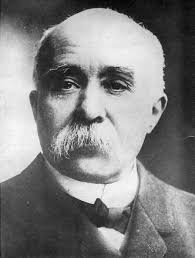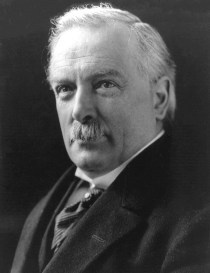 Woodrow Wilson had delicate health from childhood.
Woodrow Wilson had delicate health from childhood.
Woodrow’s Delicate Health
If health problems were a major campaign issue a hundred or more years ago, it is unlikely that Woodrow Wilson would have been considered for high office.
Severe headaches, stomach problems and vague discomforts began early in his adolescence, and many physicians today believe them to have been caused by, or at least exacerbated by psychological stress, striving, thwarting, or other emotional issues. That would never go away. He complained frequently about not-feel-wells.
Then there were at least three un- or misdiagnosed strokes that he suffered before he was fifty. For some reason, he pooh-poohed the serious issues as “overwork” or “writers’ cramp”.
His White House physician, Dr. Cary Grayson (who became a close personal friend) noted his history as well as his arteriosclerosis and high blood pressure, and put him on strict healthy regimen. A bland diet. Fresh air and exercise. As much rest and relaxation as possible. Wilson felt better than he had in years.
The Spanish Flu
The Spanish Flu, circa 1918, was not Spanish. Some even say it originated in the USA and was “brought” to Europe by the American Expeditionary Force. The origins may be debated endlessly, but the upshot is that it was virulent throughout Europe toward the end of the First World War. It also killed more people than the millions who died fighting.
Any influenza is not something to be taken lightly. Nowadays, most people who get it feel lousy for a week or so, and then recover. But if one’s health is already compromised (the elderly, the chronically ill, etc.) it can be a killer.
The Spanish Flu, more lethal than most, affected the already weakened without pity. It was especially hard on thousands of young soldiers, already debilitated by fetid, unsanitary trench living, by wounds, by malnutrition etc. It also decimated non-combatants, regardless of country, sex, or age who had suffered terribly from deprivation, exposure and starvation. It lasted for the better part of two years.
President Wilson, Possible Victim?
Woodrow Wilson had truly tried to keep us out of war, but when it finally became inevitable, it came quickly. We mobilized and sent our military “over there” much faster than anyone believed possible. It has been said by most historians that WWI was won because the USA provided fresh troops for the exhausted European Allies.
President Wilson was determined to play a prominent part in the peace negotiations in Paris once the war ended. It was his passion and the culmination of his life’s work. Against 1918 tradition (sitting Presidents never leave the country) he decided to go in person. Against political and diplomatic counsel, he chose his own “team,” which most politicians faulted as skewed and poorly balanced. And against administrative counsel, his “support staff” was woefully inadequate.
The hoopla and the fanfare and the parades celebrating “Weel-son” grew tiresome in short order. He found himself overly preoccupied with mundane chores (acknowledging bouquets, for example) that others, if he had brought them along, could have easily handled. He was not getting the rest he needed. The banquets were wreaking havoc on his delicate digestion.
And the wily European politicians were focused on blame and restitution, and cared nothing about the lofty ideals that had consumed Wilson all his life.
No wonder he fell ill.
How Sick Was The President?
The late 19-teens was still tied to Victorian times, especially medically. Doctors still had limited knowledge, and the conventional wisdom was to sidestep unfavorable information from all concerned, including the patient.
Dr. Grayson, who accompanied the Wilsons on their diplomatic mission, insisted to his counterparts, to the press, and even to Wilson and his staff, that the President was overworked, the weather was too damp, and that he was merely suffering from a severe cold. Administration personnel back in Washington were determined to keep any “grave situation” about the President’s health from the public.
But Grayson was seriously concerned. Wilson had a high fever and body aches and pains. He had a gagging cough and a sore throat. He was so weak he could barely sit up. Those symptoms strongly suggest “flu,” and since the virulent “influenza” was still rampant in Europe, it is easy to surmise that Wilson had the flu.
But others who were physically close to the President noted other symptoms, not usually associated with flu: forgetfulness, incoherence, inability to remember names of intimate associates, or even the purpose of his trip to Paris. He had suffered from strokes previously – and Grayson knew it. Wilson biographer Scott Berg indicated worrisome behavior, becoming testy and obsessed by minor details that seemed delusional, perhaps presaging behavior patterns to come.
Was it the Spanish flu? Or did the President suffer another stroke? The two are not mutually exclusive, and high fevers can temporarily affect a patient’s cognitive ability. We may never know for sure.
What we do know, however, is that Woodrow Wilson had a long history of health issues that challenged and changed his personality. Nine months after his “flu,” he was futilely coaxing a recalcitrant Congress to ratify the Treaty he had signed on behalf of the American public – which included a League of Nations, his most treasured lifelong goal.
Tense and stressed to the point of nervous collapse, Wilson had a major stroke. Once again, the extent of his condition, prognosis, limitation and its consequences were smoothed over and withheld from the general populace. The powers that were had become very good at it.
President Wilson was seriously incapacitated for the rest of his term, and indeed until his death in 1924.
Sources:
Berg, Scott A. – Wilson – G.P. Putnam’s Sons – 2013
Heckscher, Augustus – Woodrow Wilson: A Biography – Scribner’s – 1991
Smith, Gene – When The Cheering Stopped – Wm. Morrow & Co. – 1961
ttps://www.washingtonpost.com/history/2020/03/14/flu-woodrow-wilson-coronavirus-trump/






Reblogged this on Practically Historical.